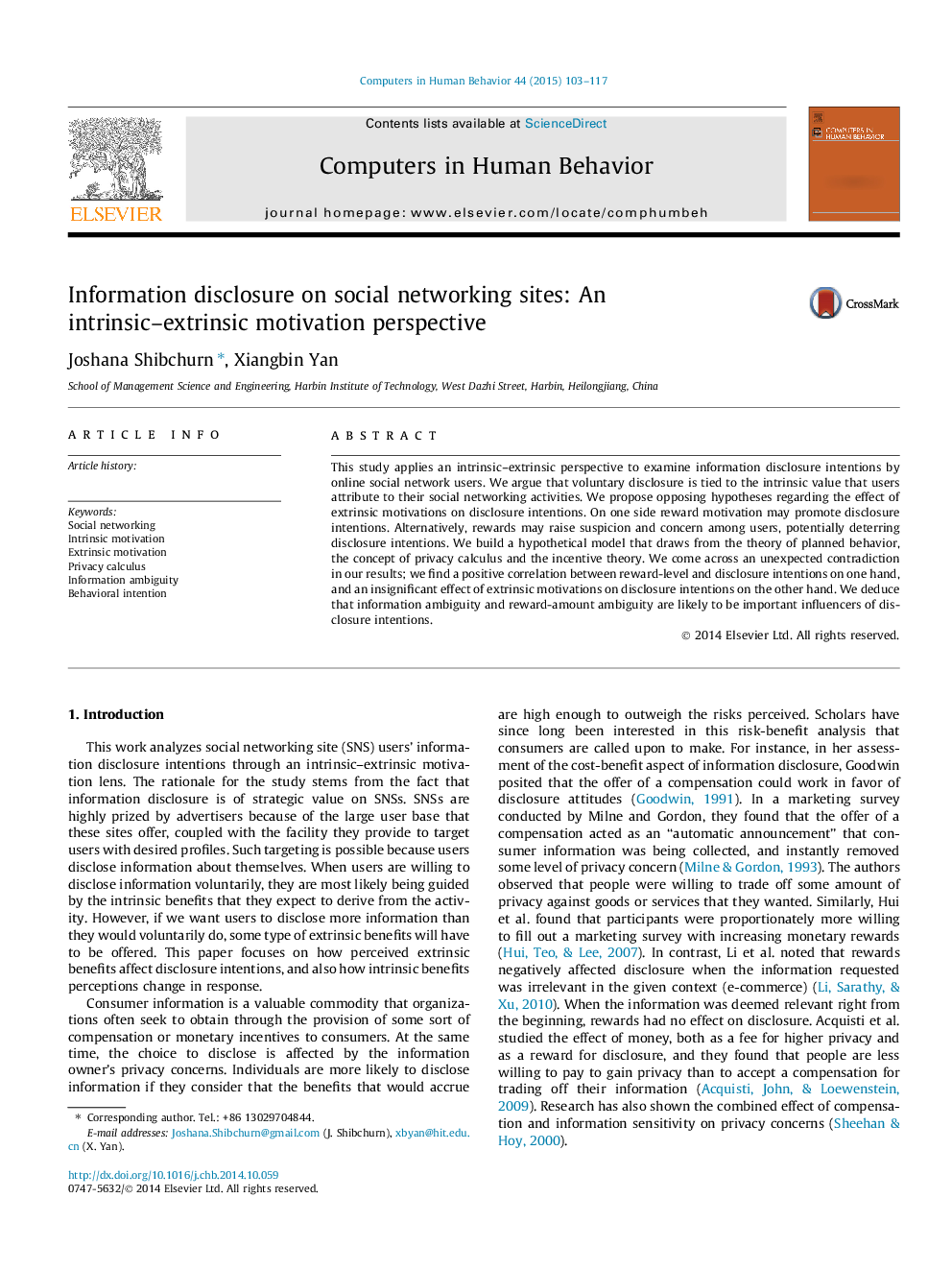| Article ID | Journal | Published Year | Pages | File Type |
|---|---|---|---|---|
| 6838560 | Computers in Human Behavior | 2015 | 15 Pages |
Abstract
This study applies an intrinsic-extrinsic perspective to examine information disclosure intentions by online social network users. We argue that voluntary disclosure is tied to the intrinsic value that users attribute to their social networking activities. We propose opposing hypotheses regarding the effect of extrinsic motivations on disclosure intentions. On one side reward motivation may promote disclosure intentions. Alternatively, rewards may raise suspicion and concern among users, potentially deterring disclosure intentions. We build a hypothetical model that draws from the theory of planned behavior, the concept of privacy calculus and the incentive theory. We come across an unexpected contradiction in our results; we find a positive correlation between reward-level and disclosure intentions on one hand, and an insignificant effect of extrinsic motivations on disclosure intentions on the other hand. We deduce that information ambiguity and reward-amount ambiguity are likely to be important influencers of disclosure intentions.
Keywords
Related Topics
Physical Sciences and Engineering
Computer Science
Computer Science Applications
Authors
Joshana Shibchurn, Xiangbin Yan,
